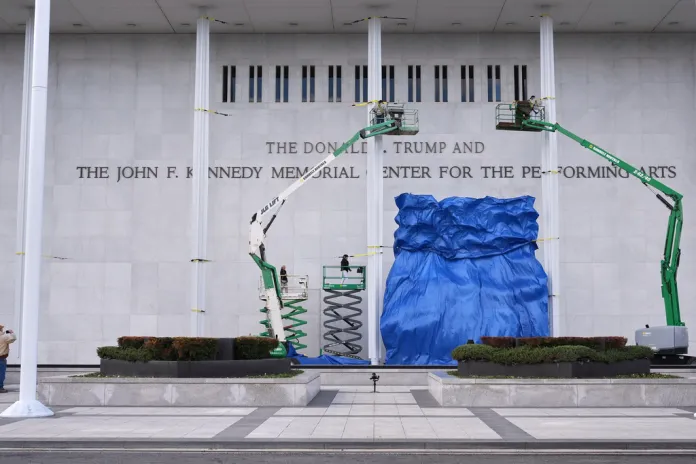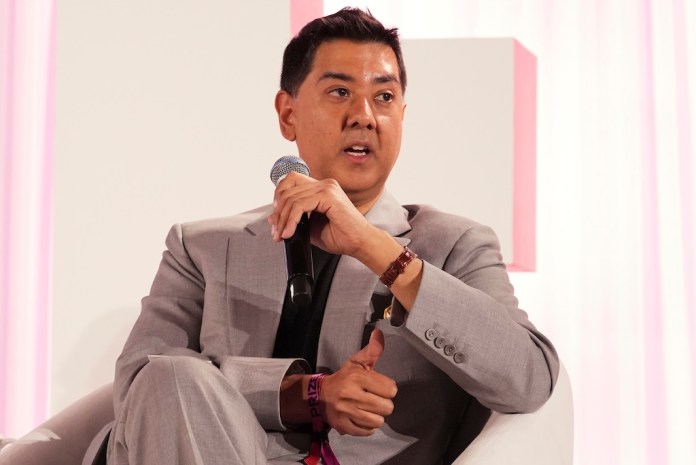Five Takeaways From Twitter FBI Agent’s Deposition In Censorship Lawsuit Brought By Conservative States
The “Twitter Files” released by Elon Musk revealed that FBI agent Elvis Chan frequently pressed the social media company to take down posts that he thought violated the site’s terms of service. There is more evidence that the federal law enforcement agency appears to have switched from enforcing laws and serving as a volunteer moderator of content for private companies.
Missouri Attorney General Eric Schmitt, and Louisiana Attorney General Jeff Landry are currently suing the Biden government for allegedly conspiring with social media companies in order to censor speech. Chan was required to sit for a long, drawn-out hearing as part of the lawsuit. deposition on November 29, Landry said “Chan’s deposition showed that the FBI was part of this incredible conspiracy.”
The deposition showed that Chan — the Assistant Special Agent in Charge of the Cyber Branch for the FBI’s San Francisco Division — interacted not just with Twitter, but with other tech companies about what he called “misinformation” This could have an impact on elections. A second government agency, Cybersecurity and Infrastructure Security Agency (CISA), met frequently with the companies, sometimes together with Chan. Here are some takeaways from the nearly 400-page transcript of Chan’s testimony:
1) Chan admits to being Terms of Service police
Chan answered when Chan was asked why he flagged posts for social media executives. “It was to alert the social media companies to see if they violated their terms of service. … I remember in some cases they would relay that they had taken down the posts. In other cases, they would say that this did not violate their terms of service.” He stated that he had approximately a “50 percent success rate,” explaining, “The success rate would be that some action had been taken because it was a terms-of-service violation.” This is distinct from any post that violates the law.
Chan encouraged Americans to harass social media companies by themselves, too. Chan said that he gives. “a lot of interviews” media, including one inwhich he stated that in days prior to the election “There’s going to be a lot of noise, there’s going to a lot of stuff that isn’t true, there’s going to be a lot of worry. What I ask you and all of the voting public to do is get your ballots in as soon as possible.”
He continued, “If you’re seeing something related to the election on your social media platform, all of them have portals where you can report that sort of information,” He explained in his deposition how he encouraged listeners not to report speech related to election to private companies “so that the social media platforms can review it and determine if it violates their terms of service.”
He encouraged his listeners to “report it to FBI.gov or justice.gov, and, you know, there’s a little button you can click to submit a complaint.” In his deposition, he stated that the FBI may take action if there was a threat to the FBI or misinformation about it. “time, place or manner” An election.
2) Ex-government agents have entered social media companies.
Many times, meetings between Chan or CISA with social media companies featured government agents sitting next to company officials who were themselves former government officials. Chan had many interactions with former federal employees at social media companies. Facebook’s employees included Emily Vacher (a former FBI employee) and Mike Torrey (a former CIA worker).
Angela Sherrer of Twitter was one of the former Department of Justice officers who worked for social media companies. In that capacity, they dealt with Chan as well as Richard Salgado and Harold Chun of Google. Reddit’s former State Department official Alyea Baldwin was his contact.
3) Since then, some partisan government officials have taken up jobs with social media companies
In addition to former FBI General Counsel Jim Baker going on to work for Twitter, where he played a key role in suppressing content related to Hunter Biden, Lisa Page — who infamously had an affair with fellow anti-Trump FBI agent Peter Strzok during the 2016 election — has now taken a job at Twilio, according to Chan. Chan said Matthew Masterson, a former federal appointee of Barack Obama who managed the CISA, had taken a job with Microsoft. Masterson called for the creation of a government anti-misinformation agency Similar to the aborted effort By the Biden administration.
4) Chan believed that software was being promoted by the State Department to social media companies. This was despite the fact that it was intended for other countries.
Chan said an agency inside the State Department called the Global Engagement Center (GEC) was set up to focus on countering terrorists’ propaganda, but has since morphed to countering “malign foreign influence as well.” Chan stated that he had spoken with Sam Stewart, the GEC’s chief executive officer, and that Stewart would present software from vendors to social media companies. Chan was worried that this might be a problem.
" Conservative News Daily does not always share or support the views and opinions expressed here; they are just those of the writer."




